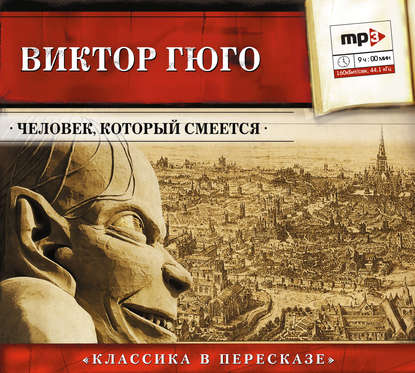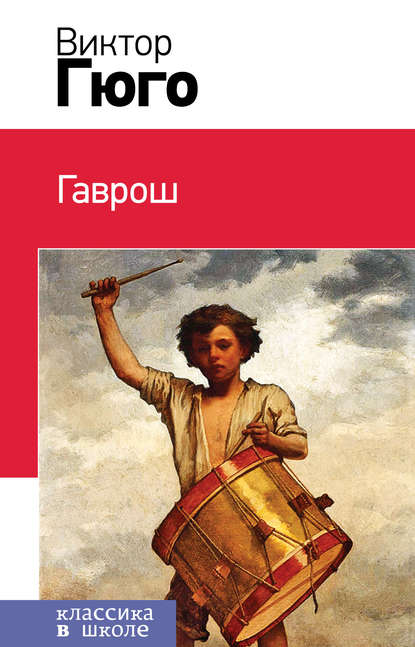
Полная версия
Les Misérables, v. 1

Victor Hugo
Les Misérables, v. 1/5: Fantine
So long as, by the effect of laws and of customs, social degradation shall continue in the midst of civilization, making artificial hells, and subjecting to the complications of chance the divine destiny of man; so long as the three problems of the age, – the debasement of man by the proletariat, the ruin of woman by the force of hunger, the destruction of children in the darkness, – shall not be solved; so long as anywhere social syncope shall be possible: in other words, and from a still broader point of view, so long as ignorance and misery shall remain on earth, books like this cannot fail to be useful.
HAUTEVILLE-HOUSE, 1862.
BOOK I
A JUST MAN
CHAPTER I
M. MYRIEL
In 1815 M. Charles François Bienvenu Myriel was Bishop of D – . He was a man of about seventy-five years of age, and had held the see of D – since 1806. Although the following details in no way affect our narrative, it may not be useless to quote the rumors that were current about him at the moment when he came to the diocese, for what is said of men, whether it be true or false, often occupies as much space in their life, and especially in their destiny, as what they do. M. Myriel was the son of a councillor of the Aix Parliament. It was said that his father, who intended that he should be his successor, married him at the age of eighteen or twenty, according to a not uncommon custom in parliamentary families. Charles Myriel, in spite of this marriage (so people said), had been the cause of much tattle. He was well built, though of short stature, elegant, graceful, and witty; and the earlier part of his life was devoted to the world and to gallantry. The Revolution came, events hurried on, and the parliamentary families, decimated and hunted down, became dispersed. M. Charles Myriel emigrated to Italy in the early part of the Revolution, and his wife, who had been long suffering from a chest complaint, died there, leaving no children. What next took place in M. Myriel's destiny? Did the overthrow of the old French society, the fall of his own family, and the tragic spectacles of '93, more frightful perhaps to the emigrés who saw them from a distance with the magnifying power of terror, cause ideas of renunciation and solitude to germinate in him? Was he, in the midst of one of the distractions and affections which occupied his life, suddenly assailed by one of those mysterious and terrible blows which often prostrate, by striking at his heart, a man whom public catastrophes could not overthrow by attacking him in his existence and his fortune? No one could have answered these questions; all that was known was that when he returned from Italy he was a priest.
In 1804 M. Myriel was Curé of B – (Brignolles). He was already aged, and lived in great retirement. Towards the period of the coronation a small matter connected with his curacy, no one remembers what, took him to Paris. Among other powerful persons he applied to Cardinal Fesch on behalf of his parishioners. One day, when the Emperor was paying a visit to his uncle, the worthy curé, who was waiting in the ante-room, saw his Majesty pass. Napoleon, noticing this old man regard him with some degree of curiosity, turned and asked sharply, —
"Who is this good man who is staring at me?"
"Sire," M. Myriel said, "you are looking at a good man and I at a great man. We may both profit by it."
The Emperor, on the same evening, asked the Cardinal the curé's name, and some time after M. Myriel, to his great surprise, learned that he was nominated Bishop of D – . What truth, by the way, was there in the stories about M. Myriel's early life? No one knew, for few persons had been acquainted with his family before the Revolution. M. Myriel was fated to undergo the lot of every new comer to a little town, where there are many mouths that speak, and but few heads that think. He was obliged to undergo it, though he was bishop, and because he was bishop. But, after all, the stories in which his name was mingled were only stories, rumors, words, remarks, less than words, mere palabres, to use a term borrowed from the energetic language of the South. Whatever they might be, after ten years of episcopacy and residence at D – , all this gossip, which at the outset affords matter of conversation for little towns and little people, had fallen into deep oblivion. No one would have dared to speak of it, no one have dared to remember it.
M. Myriel had arrived at D – , accompanied by an old maid, Mlle. Baptistine, who was his sister, and ten years younger than himself. Their only servant was a female of the same age as Mademoiselle, of the name of Madame Magloire, who, after having been the servant of M. le Curé, now assumed the double title of waiting-woman to Mademoiselle, and house-keeper to Monseigneur. Mlle. Baptistine was a tall, pale, slim, gentle person; she realized the ideal of what the word "respectable" expresses, for it seems necessary for a woman to be a mother in order to be venerable. She had never been pretty, but her whole life, which had been but a succession of pious works, had eventually cast over her a species of whiteness and brightness, and in growing older she had acquired what may be called the beauty of goodness. What had been thinness in her youth had become in her maturity transparency, and through this transparency the angel could be seen. She seemed to be a shadow, there was hardly enough body for a sex to exist; she was a little quantity of matter containing a light – an excuse for a soul to remain upon the earth. Madame Magloire was a fair, plump, busy little body, always short of breath, – in the first place, through her activity, and, secondly, in consequence of an asthma.
On his arrival M. Myriel was installed in his episcopal palace with all the honors allotted by the imperial decrees which classify the Bishop immediately after a Major-General. The Mayor and the President paid him the first visit, and he on his side paid the first visit to the General and the Prefect. When the installation was ended the town waited to see its bishop at work.
CHAPTER II
M. MYRIEL BECOMES MONSEIGNEUR WELCOME
The Episcopal Palace of D – adjoined the hospital. It was a spacious, handsome mansion, built at the beginning of the last century by Monseigneur Henri Puget, Doctor in Theology of the Faculty of Paris, and Abbé of Simore, who was Bishop of D – in 1712. This palace was a true seigneurial residence: everything had a noble air in it, – the episcopal apartments, the reception rooms, the bed-rooms, the court of honor, which was very wide, with arcades after the old Florentine fashion, and the gardens planted with magnificent trees. In the dining-room, a long and superb gallery on the ground floor, Monseigneur Henri Puget had given a state dinner on July 29, 1714, to Messeigneurs Charles Brûlart de Genlis, Archbishop, Prince of Embrun; Antoine de Mesgrigny, Capuchin and Bishop of Grasse; Philip de Vendôme, Grand Prior of France and Abbé of St. Honoré de Lérins; François de Berton de Grillon, Baron and Bishop of Vence; Cæsar de Sabran de Forcalquier, Bishop and Lord of Glandève, and Jean Soanen, priest of the oratory, preacher in ordinary to the King, and Bishop and Lord of Senez. The portraits of these seven reverend personages decorated the dining-room, and the memorable date, JULY 29, 1714, was engraved in golden letters on a white marble tablet.
The hospital was a small, single-storeyed house with a little garden. Three days after his arrival the Bishop visited it, and when his visit was over asked the Director to be kind enough to come to his house.
"How many patients have you at this moment?" he asked.
"Twenty-six, Monseigneur."
"The number I counted," said the Bishop.
"The beds are very close together," the Director continued.
"I noticed it."
"The wards are only bed-rooms, and difficult to ventilate."
"I thought so."
"And then, when the sun shines, the garden is very small for the convalescents."
"I said so to myself."
"During epidemics, and we have had the typhus this year, and had miliary fever two years ago, we have as many as one hundred patients, and do not know what to do with them."
"That thought occurred to me."
"What would you have, Monseigneur!" the Director said, "we must put up with it."
This conversation had taken place in the dining-hall on the ground floor. The Bishop was silent for a moment, and then turned smartly to the Director.
"How many beds," he asked him, "do you think that this room alone would hold?"
"Monseigneur's dining-room?" the stupefied Director asked.
The Bishop looked round the room, and seemed to be estimating its capacity.
"It would hold twenty beds," he said, as if speaking to himself, and then, raising his voice, he added, —
"Come, Director, I will tell you what it is. There is evidently a mistake. You have twenty-six persons in five or six small rooms. There are only three of us, and we have room for fifty. There is a mistake, I repeat; you have my house and I have yours. Restore me mine; this is yours."
The next day the twenty-six poor patients were installed in the Bishop's palace, and the Bishop was in the hospital. M. Myriel had no property, as his family had been ruined by the Revolution. His sister had an annuity of 500 francs, which had sufficed at the curacy for personal expenses. M. Myriel, as Bishop, received from the State 15,000 francs a year. On the same day that he removed to the hospital, M. Myriel settled the employment of that sum once for all in the following way. We copy here a note in his own handwriting.
NOTE FOR REGULATING MY HOUSEHOLD EXPENSES.

During the whole time he held the see of D – , M. Myriel made no change in this arrangement. He called this, as we see, regulating his household expenses. The arrangement was accepted with a smile by Mlle. Baptistine, for that sainted woman regarded M. Myriel at once as her brother and her bishop; her friend according to nature, her superior according to the Church. She loved and venerated him in the simplest way. When he spoke she bowed, when he acted she assented. The servant alone, Madame Magloire, murmured a little. The Bishop, it will have been noticed, only reserved 1000 francs, and on this sum, with Mlle. Baptistine's pension, these two old women and old man lived. And when a village curé came to D-, the Bishop managed to regale him, thanks to the strict economy of Madame Magloire and the sensible management of Mlle. Baptistine. One day, when he had been at D – about three months, the Bishop said, —
"For all that, I am dreadfully pressed."
"I should think so," exclaimed Madame Magloire. "Monseigneur has not even claimed the allowance which the department is bound to pay for keeping up his carriage in town, and for his visitations. That was the custom with bishops in other times."
"True," said the Bishop, "you are right, Madame Magloire." He made his claim, and shortly after the Council-general, taking the demand into consideration, voted him the annual sum of 3000 francs, under the heading, "Allowance to the Bishop for maintenance of carriage, posting charges, and outlay in visitations."
This caused an uproar among the cits of the town, and on this occasion a Senator of the Empire, ex-member of the Council of the Five Hundred, favourable to the 18th Brumaire, and holding a magnificent appointment near D – , wrote to the Minister of Worship, M. Bigot de Préameneu, a short, angry, and confidential letter, from which we extract these authentic lines:
" – Maintenance of carriage! what can he want one for in a town of less than 4000 inhabitants? Visitation charges! in the first place, what is the good of visitations at all? and, secondly, how can he travel post in this mountainous country, where there are no roads, and people must travel on horseback? The very bridge over the Durance at Château Arnoux can hardly bear the weight of a cart drawn by oxen. These priests are all the same, greedy and avaricious! This one played the good apostle when he arrived, but now he is like the rest, and must have his carriage and post-chaise. He wishes to be as luxurious as the old bishops. Oh this priesthood! My Lord, matters will never go on well till the Emperor has delivered us from the skullcaps. Down with the Pope! (there was a quarrel at the time with Rome). As for me, I am for Cæsar and Cæsar alone, etc., etc., etc."
The affair, on the other hand, greatly gladdened Madame Magloire. "Come," she said to Mlle. Baptistine, "Monseigneur began with others, but he was obliged to finish with himself. He has regulated all his charities, and here are 3000 francs for us at last!"
The same evening the Bishop wrote, and gave his sister, a note conceived thus: —
CARRIAGE AND TRAVELLING EXPENSES.

Such was M. Myriel's budget. As for the accidental receipts, such as fees for bans, christenings, consecrating churches or chapels, marriages, &c., the Bishop collected them from the rich with so much the more eagerness because he distributed them to the poor. In a short time the monetary offerings became augmented. Those who have and those who want tapped at M. Myriel's door, the last coming to seek the alms which the former had just deposited. The Bishop in less than a year became the treasurer of all charity and the cashier of all distress. Considerable sums passed through his hands, but nothing could induce him to make any change in his mode of life, or add the slightest superfluity to his expenditure.
Far from it, as there is always more wretchedness at the bottom than paternity above, all was given, so to speak, before being received; it was like water on dry ground: however much he might receive he had never a farthing. At such times he stripped himself. It being the custom for the bishops to place their Christian names at the head of their mandates and pastoral letters, the poor people of the country had selected the one among them which conveyed a meaning, and called him Monseigneur Welcome (Bienvenu). We will do like them, and call him so when occasion serves. Moreover, the name pleased him. "I like that name," he would say. "The Welcome corrects the Monseigneur."
We do not assert that the portrait we are here drawing is probably as far as fiction goes: we confine ourselves to saying that it bears a likeness to the reality.
CHAPTER III
A GOOD BISHOP AND A HARD BISHOPRIC
The Bishop, though he had converted his coach into alms, did not the less make his visitations. The diocese of D – is fatiguing; there are few plains and many mountains, and hardly any roads, as we saw just now: twenty-two curacies, forty-one vicarages, and two hundred and eighty-five chapels of ease. It was a task to visit all these, but the Bishop managed it. He went on foot when the place was near, in a carriage when it was in the plain, and on a mule when it was in the mountains. The two old females generally accompanied him, but when the journey was too wearying for them he went alone.
One day he arrived at Senez, which is an old Episcopal town, mounted on a donkey; his purse, which was very light at the time, had not allowed him any other equipage. The Mayor of the city came to receive him at the door of the Bishop's Palace, and saw him dismount with scandalized eyes. A few cits were laughing round him. "M. Mayor and gentlemen," the Bishop said, "I see what it is that scandalizes you. You consider it great pride for a poor priest to ride an animal which our Saviour once upon a time bestrode. I did so through necessity, I assure you, and not through vanity."
On his tours the Bishop was indulgent and gentle, and preached less than he conversed. His reasonings and models were never far-fetched, and to the inhabitants of one country he quoted the example of an adjacent country. In those cantons where people were harsh to the needy he would say, "Look at the people of Briançon. They have given the indigent, the widows, and the orphans, the right of mowing their fields three days before all the rest. They rebuild their houses gratuitously when they are in ruins. Hence it is a country blessed of GOD. For one hundred years not a single murder has been committed there." To those eager for grain and good crops, he said, "Look at the people of Embrun. If a father of a family at harvest-time has his sons in the army, his daughters serving in the town, or if he be ill or prevented from toil, the Curé recommends him in his sermon; and on Sunday after Mass all the villagers, men, women, and children, go into his field, and cut and carry home his crop." To families divided by questions of money or inheritance he said, "Look at the Highlanders of Devolny, a country so wild that the nightingale is not heard once in fifty years. Well, when the father of a family dies there the boys go off to seek their fortune, and leave the property to the girls, so that they may obtain husbands." In those parts where the farmers are fond of lawsuits, and ruin themselves in writs, he would say, "Look at those good peasants of the valley of Queyras. There are three thousand souls there. Why, it is like a little republic. Neither judge nor bailiff is known there, and the Mayor does everything. He divides the imposts, taxes everybody conscientiously, settles quarrels gratis, allots patrimonies without fees, gives sentences without costs, and is obeyed because he is a just man among simple men." In villages where there was no schoolmaster he again quoted the people of Queyras. "Do you know what they do? As a small place, containing only twelve or fifteen hearths, cannot always support a master, they have schoolmasters paid by the whole valley, who go from village to village, spending a week in one, ten days in another, and teaching. These masters go the fairs, where I have seen them. They can be recognized by the pens they carry in their hat-band. Those who only teach reading have but one pen: those who teach reading and arithmetic have two: those who teach reading, arithmetic, and Latin, have three. But what a disgrace it is to be ignorant! Do like the people of Queyras."
He spoke thus, gravely and paternally. When examples failed him he invented parables, going straight to the point, with few phrases and a good deal of imagery. His was the eloquence of the Apostles, convincing and persuading.
CHAPTER IV
WORKS RESEMBLING WORDS
The Bishop's conversation was affable and lively. He condescended to the level of the two old females who spent their life near him, and when he laughed it was a schoolboy's laugh. Madame Magloire was fond of calling him "Your Grandeur." One day he rose from his easy chair and went to fetch a book from his library: as it was on one of the top shelves, and as the Bishop was short, he could not reach it "Madame Magloire," he said, "bring me a chair, for my Grandeur does not rise to that shelf."
One of his distant relatives, the Countess de Lô, rarely let an opportunity slip to enumerate in his presence what she called the "hopes" of her three sons. She had several very old relatives close to death's door, of whom her sons were the natural heirs. The youngest of the three would inherit from a great-aunt 100,000 francs a year; the second would succeed to his uncle's dukedom, the third to his grandfather's peerage. The Bishop generally listened in silence to this innocent and pardonable maternal display. Once, however, he seemed more dreamy than usual, while Madame de Lô was repeating all the details of their successions and "hopes." She broke off somewhat impatiently. "Good gracious, cousin," she said, "what are you thinking, about?" "I am thinking," said the Bishop, "of something singular, which, if my memory is right, is in St. Augustine. Place your hopes in the man to whom it is impossible to succeed."
On another occasion, receiving a letter announcing the death of a country gentleman, in which, in addition to the dignities of the defunct, all the feudal and noble titles of all his relatives were recorded, – "What a back death has! what an admirable burthen of titles he is made lightly to bear," he exclaimed, "and what sense men must possess thus to employ the tomb in satisfying their vanity."
He displayed at times a gentle raillery, which nearly always contained a serious meaning. During one Lent a young vicar came to D – and preached at the cathedral. He was rather eloquent, and the subject of his sermon was charity. He invited the rich to give to the needy in order to escape hell, which he painted in the most frightful way he could, and reach paradise, which he made desirable and charming. There was among the congregation a rich, retired merchant, somewhat of a usurer, who had acquired two million francs by manufacturing coarse cloths, serges, and caddis. In his whole life-time M. Géborand had never given alms to a beggar, but after this sermon it was remarked that he gave every Sunday a sou to the old women begging at the cathedral gate. There were six of them to share it. One day the Bishop saw him bestowing his charity, and said to his sister, with a smile, "Look at M. Géborand buying heaven for a sou."
When it was a question of charity he would not let himself be rebuffed even by a refusal, and at such times made remarks which caused people to reflect. Once he was collecting for the poor in a drawing-room of the town. The Marquis de Champtercier was present, a rich old avaricious man, who contrived to be at once ultra-Royalist and ultra-Voltairian. This variety has existed. The Bishop on reaching him touched his arm, "Monsieur le Marquis, you must give me something." The Marquis turned and answered dryly: "I have my own poor, Monseigneur." "Give them to me," said the Bishop. One day he delivered the following sermon at the cathedral: —
"My very dear brethren, my good friends, there are in France thirteen hundred and twenty thousand peasants' houses which have only three openings; eighteen hundred and seventeen thousand which have only two openings, the door and the window; and, lastly, three hundred and forty-six thousand cabins which have only one opening, the door, and this is because of a thing called the door and window tax. Just place poor families, aged women and little children, in these houses, and then see the fevers and maladies! Alas! God gives men fresh air, and the law sells it to them. I do not accuse the law, but I bless God. In the Isère, in the Var, in the two Alps, Upper and Lower, the peasants have not even trucks, but carry manure on their backs: they have no candles, and burn resinous logs and pieces of rope steeped in pitch. It is the same through all the high parts of Dauphiné. They make bread for six months, and bake it with dried cow-dung. In winter they break this bread with axes and steep it in water for four-and-twenty hours before they can eat it. Brethren, have pity, see how people suffer around you!"
A Provençal by birth, he easily accustomed himself to all the dialects of the South: this greatly pleased the people, and had done no little in securing him admission to all minds. He was, as it were, at home in the hut and on the mountain. He could say the grandest things in the most vulgar idioms, and as he spoke all languages he entered all hearts. However, he was the same to people of fashion as to the lower classes.
He never condemned anything hastily or without taking the circumstances into calculation. He would say, Let us look at the road by which the fault has come. Being, as he called himself with a smile, an ex-sinner, he had none of the intrenchments of rigorism, and, careless of the frowns of the unco' good, professed loudly a doctrine which might be summed up nearly as follows, —
"Man has upon him the flesh which is at once his burden and his temptation. He carries it with him and yields to it. He must watch, restrain, and repress it, and only obey it in the last extremity. In this obedience there may still be a fault: but the fault thus committed is venial. It is a fall, but a fall on the knees, which may end in prayer. To be a saint is the exception, to be a just man is the rule. Err, fail, sin, but be just. The least possible amount of sin is the law of man: no sin at all is the dream of angels. All that is earthly is subjected to sin, for sin is a gravitation."












